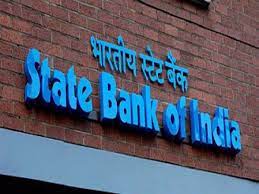Are you considering investing in SBI’s recurring deposit plan? What You Should Understand
The Recurring Deposit (RD) Scheme of the State Bank of India enables depositors to accumulate savings over time by making recurring monthly deposits of a specified amount. Additionally, it enables the depositors to have enough money at the conclusion of the term to reach their financial objectives. SBI provides senior citizen depositors recurring deposits with interest rates ranging from 7.00% to 7.50% per year. With a minimum monthly deposit of Rs 100, it also provides interest rates of 6.50% to 6.80% pa to other depositors. SBI RD positions have terms of one to ten years. Investors in the RD plan must make a monthly contribution into their bank accounts. Depositors have the option of making a monthly investment of Rs 5,000 in the bank for a duration of 5 years. In this case, the depositors would get interest at a rate of 6.50 percent on the Rs 5,000 principle. Every year, the principle amount’s compound interest will likewise rise. Thus, after five years, the investors would get an interest payment of Rs 54,957. Let’s look at the interest rates for SBI’s recurring deposits.
Regular Rates (6.80); Senior Citizen Rates (7.30); 1 year to less than 2 years
Regular Rates (7.00); Senior Citizen Rates (7.50); 2 years to less than 3 years
Regular Rates (6.50) for those with 3 to 5 years of experience; Senior Citizen Rates (7.00).
Regular Rates (6.50) for 5 years and up to 10 years; Senior Citizen Rates (7.50).
Other characteristics of the SBI RD Account include:
If six consecutive payments are not paid, the account will be prematurely terminated and the remaining amount will be remitted to the account holder.
Depositors are eligible to apply for an overdraft on their SBI RD account.
Late payment will result in penalties.
Depositors are able to move their SBI RD accounts across SBI branches.
Depositors get an all-purpose passbook.
Nomination is only permitted in the favor of certain depositors.
Since the RD account generates interest income, it will also be taxed in accordance with the Income Tax Act of 1961.
When the RD matures, SBI allows its depositors to convert it into a fixed deposit.







